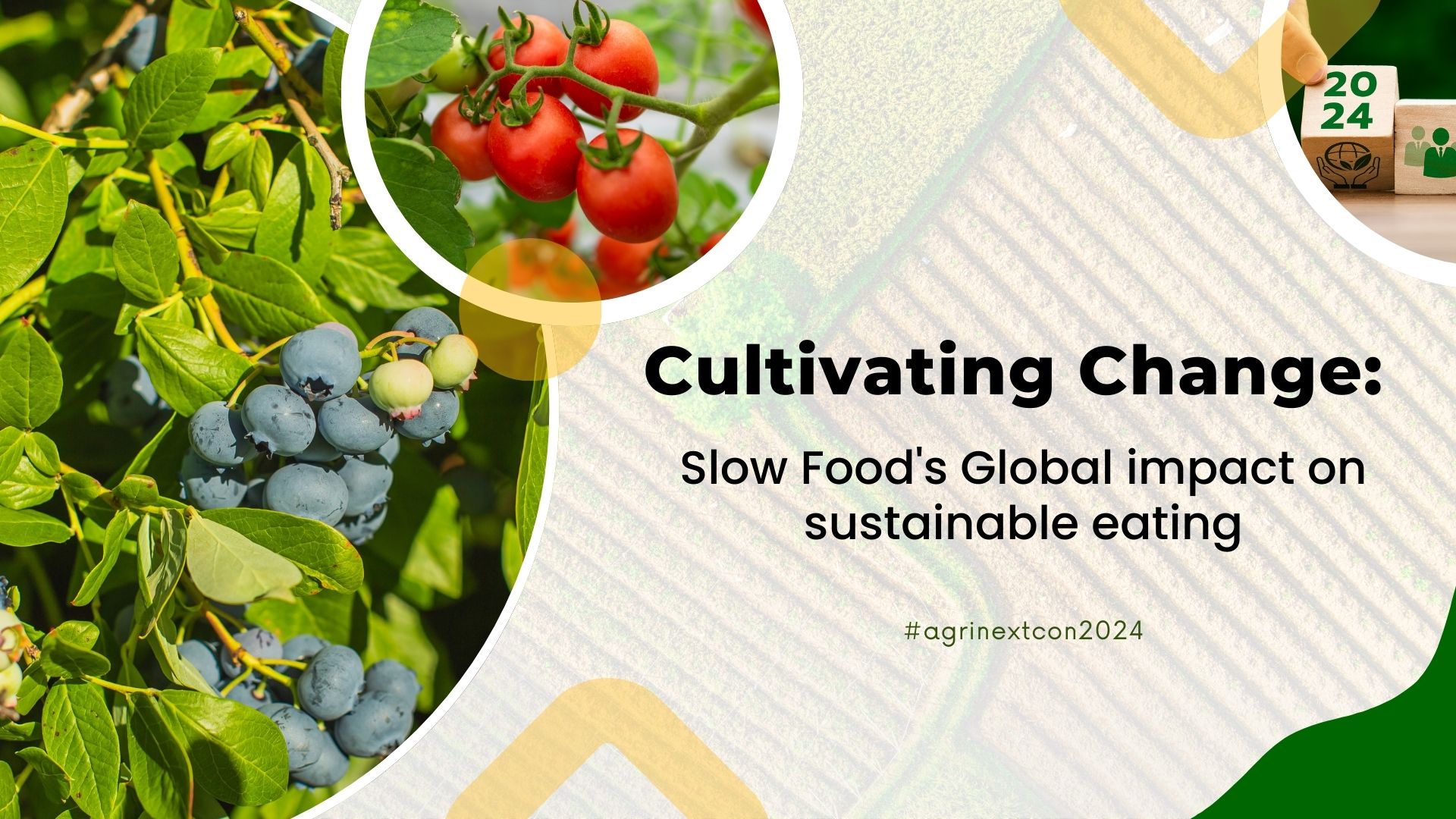
“Slow Food unites the pleasure of food with responsibility, sustainability and harmony with nature”.
(Founder of the international slow food movement)
About Slow Food
Since its beginnings in Italy in 1986, Slow Food has grown into a global movement involving millions of people in over 160 countries, working to ensure everyone has access to good, clean and fair food.
Slow Food International plays a significant role in promoting sustainable agriculture through various initiatives:
Preservation of Biodiversity: Slow Food works to protect and promote biodiversity in agriculture by advocating for the preservation of traditional, heirloom, and endangered food varieties. By supporting small-scale farmers who cultivate diverse crops, Slow Food helps to safeguard genetic diversity and ensure resilient agricultural systems.
Promotion of Sustainable Farming Practices: Slow Food encourages farming methods that prioritize environmental sustainability, such as agroecology, organic farming, and permaculture. By promoting these practices, Slow Food aims to minimize the use of synthetic inputs, conserve natural resources, and enhance soil health and biodiversity.
Support for Local Food Systems: Slow Food advocates for the development of local food systems that prioritize small-scale producers, artisanal food products, and traditional culinary practices. By fostering connections between producers and consumers, Slow Food helps to strengthen local economies, reduce food miles, and promote food sovereignty.
Advocacy for Fair Trade and Social Justice: Slow Food advocates for fair and equitable trading relationships that benefit farmers, workers, and communities. By promoting fair trade principles, Slow Food seeks to address issues such as poverty, exploitation, and social injustice within the food system.
Education and Awareness-raising: Slow Food engages in education and awareness-raising activities to promote sustainable food consumption patterns and empower consumers to make informed choices. Through events, campaigns, and educational programs, Slow Food raises awareness about the importance of sustainable agriculture, biodiversity conservation, and food sovereignty.
India’s vast cultural diversity and culinary traditions provide ample opportunities for Slow Food to collaborate with local communities, chefs, farmers, and food activists to promote sustainable food practices and celebrate indigenous cuisines.
Similarly, in other Asian countries, such as Thailand, Japan, and Indonesia, Slow Food International’s principles of good, clean, and fair food apply .These countries have unique culinary traditions, agricultural landscapes, and biodiversity hotspots that can benefit from Slow Food’s advocacy for sustainable food production, consumption, and cultural preservation.
While the specific challenges and opportunities may vary across different regions, Slow Food International’s overarching mission of promoting food sovereignty, environmental sustainability, and social justice transcends geographical boundaries and resonates with people worldwide who are passionate about food and agriculture. Therefore, Slow Food International’s relevance extends to India, Asia, and beyond, as it strives to build a more sustainable and equitable food system for all.
Overall, Slow Food International plays a crucial role in promoting a more sustainable, equitable, and resilient food system by advocating for biodiversity conservation, sustainable farming practices, local food systems, fair trade, and consumer empowerment.
Explore the cutting-edge insights and innovative perspectives shaping the future of agriculture at the upcoming AgriNext Awards,Conference & Expo.
Be prepared to be enlightened and inspired as distinguished speakers take the stage to discuss these thought-provoking pieces, unraveling their significance and impact on the agricultural domain. Join us as we embark on a journey of discovery, collaboration, and forward-thinking at AgriNext Awards,conference & Expo.
The Philosophy of Slow Food
At its core, the Slow Food movement promotes the idea that food should be good, clean, and fair:
- Good: Food should be nutritious, delicious, and enjoyable.
- Clean: Food production should not harm the environment.
- Fair: Food should be accessible to everyone, and producers should receive fair compensation for their work.
This philosophy underscores every initiative undertaken by Slow Food, from educational programs to advocacy for food justice.
Supporting Local Food Systems
One of the cornerstones of Slow Food’s mission is to support local food systems. By emphasizing the importance of regional and seasonal foods, the movement encourages people to reconnect with their local culinary traditions. This not only reduces the carbon footprint associated with transporting food over long distances but also helps preserve local biodiversity and agricultural heritage.
Local food festivals, farmers’ markets, and community-supported agriculture (CSA) programs are just a few ways Slow Food fosters these connections.
Promoting Sustainable Farming Practices
Sustainable agriculture is a key tenet of Slow Food. The movement advocates for farming methods that protect the environment, maintain soil fertility, and conserve water. By promoting organic farming, agroecology, and permaculture, Slow Food helps combat the destructive impacts of industrial agriculture, such as soil degradation, water pollution, and loss of biodiversity.
Programs like the Slow Food Presidia support small-scale producers who use traditional methods, helping them gain market access and ensuring their practices remain economically viable. This not only sustains local economies but also promotes agricultural biodiversity by preserving traditional crops and livestock breeds.
Educating for Change
Education is a powerful tool in the fight for sustainable food systems, and Slow Food places a strong emphasis on it. Through initiatives like “Taste Education,” the movement teaches children and adults about the origins of their food, how it’s produced, and why it matters. These programs are designed to cultivate an appreciation for quality food and to instill the values of sustainability and food justice.
Slow Food also organizes events like Terra Madre Salone del Gusto, which bring together farmers, chefs, activists, and consumers from around the world to share knowledge and ideas. These gatherings foster a global dialogue about food, culture, and sustainability, inspiring collective action towards a more equitable food system.
Advocacy and Policy Influence
Beyond grassroots initiatives, Slow Food also engages in advocacy to influence food and agricultural policy at local, national, and international levels. The movement campaigns for policies that support small-scale farmers, protect biodiversity, and promote fair trade. By collaborating with governments, NGOs, and other organizations, Slow Food strives to create systemic change that aligns with its principles of good, clean, and fair food.
A Global Impact
Today, Slow Food boasts a network of over 100,000 members across more than 160 countries. This global presence allows the movement to address food system issues from a multitude of cultural perspectives, tailoring solutions to the unique needs of different communities.
In countries like Brazil, Slow Food supports indigenous communities in protecting their traditional foodways from the encroachment of industrial agriculture. In Africa, the “10,000 Gardens in Africa” project aims to establish sustainable gardens in schools and communities, providing fresh, healthy food and fostering agricultural knowledge.
Signup For AgriNext Conference Newsletter

